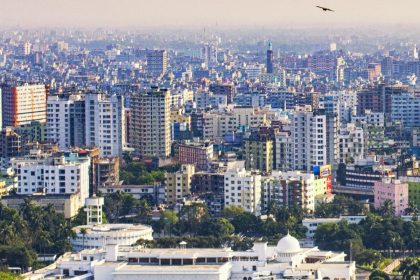The digital nomad lifestyle is no longer a fringe dream — it’s a global movement. And for thousands of remote workers seeking both Wi-Fi and waves, three tropical cities have emerged as unofficial capitals: Bali in Indonesia, Chiang Mai in Thailand, and Cebu in the Philippines.
Each offers a unique mix of affordability, community, culture, and natural beauty — making them prime destinations for those blending work with wanderlust.
Bali: Spiritual Vibes and Surf-Side Coworking
Why it’s popular: Bali is where mindfulness meets productivity. With yoga studios, beach cafés, and lush jungles, it’s easy to see why creatives, entrepreneurs, and startup founders flock to its shores.
- Top hubs: Ubud (for wellness and quiet focus), Canggu (for surf, social life, and trendy coworking spaces)
- Cost of living: Mid-range — you can live comfortably on $1,500–$2,500/month
- Culture: Balinese Hinduism, rich traditions, and a warm, respectful local culture
- Vibe: Balanced — think coconut water in the morning, Slack calls by noon, and a sunset surf at 5
Notable coworking spaces: Dojo Bali, Outpost, BWork
Chiang Mai: Zen, Temples, and Remote Worker Efficiency
Why it’s popular: Tucked in the mountains of Northern Thailand, Chiang Mai is calm, affordable, and efficient — a favorite among solo freelancers and long-term expats.
- Top perks: Incredibly low cost of living (often under $1,000/month), fast Wi-Fi, world-class street food
- Vibe: Quiet and productive, ideal for deep work
- Cultural edge: Dozens of golden temples, Buddhist philosophy, and a tight-knit expat community
- Best time to go: November to February (dry season, cooler weather)
Notable coworking spaces: Punspace, Yellow, Alt_Chiang Mai
Cebu: Island Energy Meets Urban Hustle
Why it’s popular: Cebu is the Philippines’ sweet spot — where island life meets city buzz. It offers an English-speaking environment, friendly locals, and easy access to white-sand beaches.
- Top perks: A blend of modern malls, coral reefs, historic architecture, and diving spots
- Cost of living: Moderate — comfortable living starts around $1,200/month
- Remote-friendly vibe: Young, tech-savvy population and growing startup culture
- Nearby getaways: Bohol, Siquijor, and Malapascua are short boat rides away
Notable coworking spaces: The Company Cebu, KMC Coworking, Nomad’s Hub
What Draws Remote Workers to These Tropical Hubs?
- Affordability: Live well for a fraction of what you’d spend in major Western cities
- Community: Digital nomads form tight, supportive circles, often through meetups and coworking
- Nature access: Beaches, jungles, waterfalls, and mountains offer daily adventure
- Visas: All three countries offer relatively flexible visa options for long stays
- Lifestyle: You can work hard — and still swim, meditate, or hike before dinner
Challenges to Consider
- Visas can be tricky long-term — always check requirements before booking a one-way ticket
- Time zones may not align with Western clients (Asia is often ahead by 6–12 hours)
- Internet can be hit-or-miss in some areas (though coworking spaces often have backups)
- Cultural respect is key — understanding local norms and customs builds goodwill and better experiences
The Future of Work Is Flexible — and Sunny
Bali, Chiang Mai, and Cebu prove that work doesn’t have to be confined to gray cubicles or city skylines. With a laptop and a sense of adventure, you can join a global movement of tropical nomads carving out new ways to live and work.
Whether you’re chasing sunsets, building a startup, or simply tired of your office view — the tropics are calling. And the Wi-Fi password is waiting.











